Affordable Housing
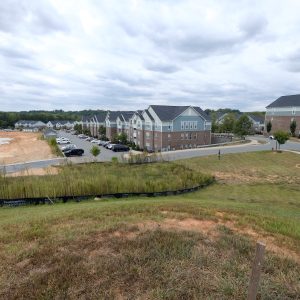
Small towns and rural communities seek to boost affordable housing
In Gastonia, construction is underway on the Parkside on Hudson apartments, an 80-unit, garden-style affordable housing development that will offer a gazebo and picnic shelter — for monthly rents mostly ranging from $600 to $800. Early next year, work is expected to start on the first project in Mooresville under the town’s new zoning ordinance, […]
There’s a housing affordability crisis in rural areas, too
Charlotte has struggled with housing affordability in recent years, as the city faces rising rents and home prices driven by rapid growth and low supply. But urban areas are not the only places grappling with these challenges, even though affordable housing is typically seen as an urban problem. Rural areas in the Carolinas Urban-Rural Connection […]
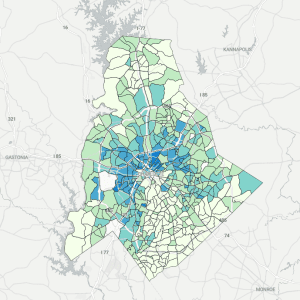
New maps show Charlotte demographic trends
New data on the Quality of Life Explorer mapping tool paint a picture of how demographics are changing across Charlotte and Mecklenburg County, as well as other measures such as bicycle friendliness, voter participation and average water consumption. The Quality of Life Explorer is a joint tool of Mecklenburg County, the city of Charlotte and […]

High rent, cost burdens, and inadequate supply: Five new, key facts about housing
Charlotte and Mecklenburg County are still facing a large gap between the supply of affordable housing and the number of residents who need it, as inreasing rents and a tight housing market are squeezing more families’ budgets and putting them at risk of housing instability, evicion and homelessness. Those are some of the key findings […]

The Urban Institute Research Faculty Fellows seek to better our region
A new program designed to identify solutions for some of the pressing needs and issues facing the greater Charlotte region is getting underway this fall at the UNC Charlotte Urban Institute. For the first time, the Institute has named a cohort of Faculty Fellows to conduct research projects and work alongside local stakeholders to understand […]
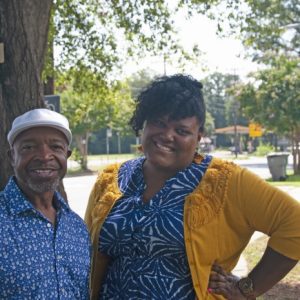
Can a community land trust stop gentrification in west Charlotte? This group thinks so.
With a full-time executive director and a $200,000 grant, a three-year-old west Charlotte nonprofit is accelerating its efforts to stave off displacement with a housing strategy that’s unprecedented in this fast-developing city. In the next five years, the West Side Community Land Trust wants to build 50 permanently affordable housing units in historically black neighborhoods […]

Charlotte loves visions. Here are some of the biggest on the drawing board.
If planners, developers and other leaders in Charlotte have a favorite word, it might just be “vision.”
In a city defined by its growth, local leaders aren’t shy about throwing the word around,. and there are plenty of visions being promoted in Charlotte at any one time. Visions, of course, don’t always become reality – and if they do, they often take far longer than the original planners imagined, and mutate from their original form. But visions can also set the stage for development patterns that persist for generations.

A new local racial equity analysis tool highlights disparities in homelessness
In January 2019, the U.S. Department of Housing & Urban Development (HUD) released a Continuum of Care (CoC) Racial Equity Analysis Tool to help communities across the United States understand who is accessing local CoC systems and what outcomes are being achieved. Mecklenburg County Community Support Services, in partnership with UNC Charlotte Urban Institute, adapted […]
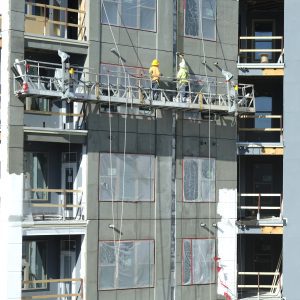
As development booms, Charlotte still wrestles with density
With Charlotte’s population growing by dozens of people a day, planners, politicians and many residents agree that denser development is inevitable in the city’s future. But just how dense – and exactly where to build that extra density – remain thorny questions, especially when denser developments are proposed in single-family neighborhoods. The tension between wanting […]
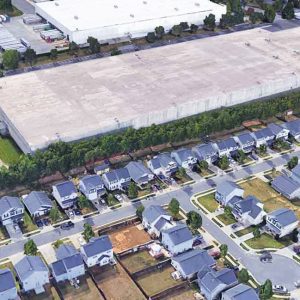
‘Repackaged Urban Renewal’? Research examines starter-home neighborhoods
Charlotte saw a boom of low-cost, single-family subdivisions from the late 1990s until a recession hit in 2007. In a new research article, two scholars conclude that many of those subdivisions, touted as “affordable housing,” did not improve life for the lower-income households who moved in. They characterize the unfortunate outcomes of some of those […]